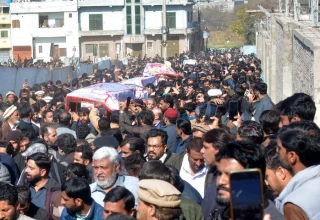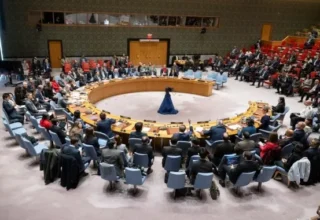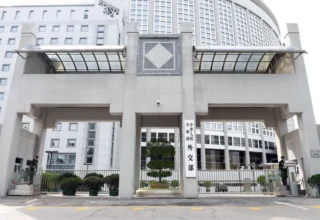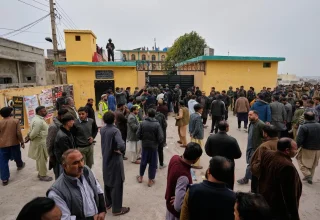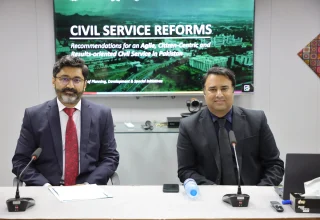
Islamabad: The Pakistan Institute of Development Economics (PIDE) on Thursday hosted a seminar titled “Pakistan Governance Roadmap 2025: Civil Service Reform, Now or Never”. The session, moderated by Dr. Faheem Jehangir, Dean Policy at PIDE & PD RASTA, was led by Dr. Adnan Rafiq, Member (Governance) at the Planning Commission of Pakistan, and brought together policymakers, academics, and students to debate the urgent transformation needed in Pakistan’s governance system.
In his keynote address, Dr. Rafiq declared that civil service reform is no longer optional but a survival imperative. He noted that repeated reform attempts since the 1950s have stalled due to political resistance, bureaucratic inertia, and lack of continuity. Rooted in colonial-era practices, Pakistan’s bureaucracy is struggling to cope with modern socio-economic requirements, technological disruptions, and governance challenges, he argued.
Backed by Federal Minister for Planning, Development, and Special Initiatives Prof. Ahsan Iqbal, Dr. Rafiq presented 47 recommendations to upgrade institutional structures and improve public service delivery. Central to this vision is the Pakistan Governance Roadmap 2025, which envisions a SMART civil service — Specialized, Meritocratic, Accountable, Responsive, and Trusted. The shift aims to replace rigid process compliance with measurable outcomes, domain expertise, and citizen-centric governance.
The transformation framework rests on five pillars: specialized recruitment exams focused on critical thinking rather than rote memorization; competitive training tied to promotions; creation of a National Executive Service (NES) for senior leadership with lateral entry from the private sector; performance management systems linking individual goals to ministerial outcomes; and merit-based compensation, promotions, and contributory pensions.
The roadmap also emphasizes institutional strengthening, including digitization of the Federal Public Service Commission, creation of specialized service groups in law, economics, energy, and engineering, and professionalization of ministries through Human Resource Coordinators and Senior Executive Scales. Strengthening federal–provincial coordination, empowering local governments with devolved authority, revenue mobilization, and inclusive elections were also highlighted as key reforms to deepen grassroots democracy.
Adopting STAR principles as Stable, Transparent, Agile, and Responsible governance, the plan introduces digital transformation initiatives, including the Open PSDP portal, National Job Portal, and climate-resilient recovery frameworks to enhance transparency, accountability, and inclusivity while driving economic growth.
Dr. Rafiq also called for a clear separation of policy, regulation, and execution functions, while warning that the adoption of the SMART framework may face serious hurdles due to entrenched bureaucratic culture and outdated financial practices. He stressed that sustained political will and broad stakeholder consensus would be critical for successful implementation.
Concluding the seminar, Dr. Rafiq insisted that reforms “cannot remain on paper but must be owned, institutionalized, and consistently implemented.” He emphasized that Pakistan’s future prosperity depends on building a civil service that is agile, citizen-serving, and performance-driven, drawing lessons from successful models abroad. The event ended with strong consensus that civil service reform is not just an option but a matter of national survival and prosperity.






